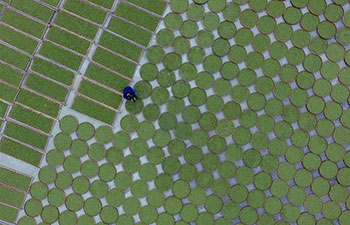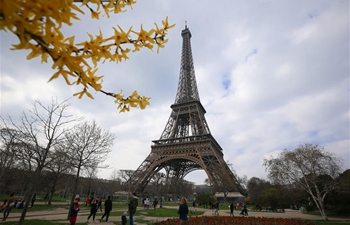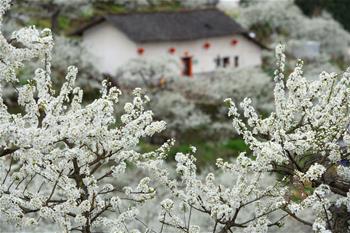HANGZHOU, March 25 (Xinhua) -- Archaeologists in east China's Zhejiang Province said they have identified a 100-hectare site to be a Neolithic jade workshop dating back 4,500-4,800 years.
The Zhongchuming site in the village of Yangdun in Deqing County is the largest discovered jade workshop complex from the Liangzhu culture, best known for its exquisite jade carvings, according to the Zhejiang Provincial Institute of Cultural Relics and Archaeology.
The institute said 1,600 pieces of raw jade and over 200 finished and semi-finished jade products, including defective ones, were unearthed from a dumping site of the jade workshop, which was built on a mound.
Jade processing tools such as whetstones were also among the relics found at the site, which also includes relics of houses and tombs. The site was identified after a thorough examination between 2017 and 2018.
Among all the sites dating back to the 5,000-year-old Liangzhu culture, Zhongchuming boasts the largest number of jade. Further research and examination will shed more light on the source of the jade and jade carving techniques from the period, researchers said.
















